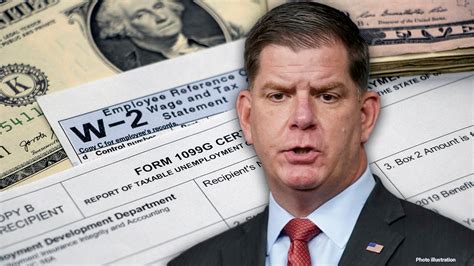By Talia Kaplan
U.S. Labor Secretary Marty Walsh argued on Friday, after the July jobs report revealed that U.S. employers hired more workers than expected last month, that “there is no indication at all” that ending extended unemployment benefits in some states before the September expiration “has added” to the “great” report.
Walsh joined “Varney & Co.” on Friday, shortly after the report was released, noting that over the last three months there has been an “average of 800,000 people coming into the work force” while the $300 supplemental unemployment benefits were in place.
Nonfarm payrolls increased by 943,000 workers in July as the unemployment rate fell to 5.4%, the Labor Department said Friday. Analysts surveyed by Refintiv were expecting 870,000 jobs gained and the unemployment rate to fall to 5.7% from 5.9%. June’s reading was revised higher by 88,000 jobs to 938,000.
The jobs gains occurred as three additional states ended the supplemental $300 per week in unemployment benefits. A fourth state, Maryland, was scheduled to end the benefits, but was blocked from doing so by a Baltimore judge.
Notable job gains were seen in leisure and hospitality (+380,000), which saw two-thirds of the jobs gained in food services and drinking places. Public and private education (+261,000), professional and business services (+60,000), transportation and warehousing (+50,000) also saw sizable gains. Construction and wholesale trade were little changed.
The labor force participation rate was little changed at 61.7%. The rate has held between 61.4% and 61.7% since June 2020.
Average hourly earnings rose 0.4% month over month and 4% annually. Economists had expected respective increases of 0.3% and 3.8%.
The U.S. economy has gained 16.7 million jobs since April 2020 but is down by 5.7 million from pre-pandemic levels.
Walsh also argued on Friday that more government spending is “very much needed in our country” to provide “long-term investments.”
He noted that the report released Friday revealed the U.S. “lost ground” in the nursing home and health care sector, which he argued shows “that there’s a big need for a CARES economy package [The Coronavirus Aid, Relief, and Economic Security package] to make investments in that area.”
He also stressed the importance of passing the infrastructure bill, which he said is “about rebuilding roads and bridges and the infrastructure.”
“That’s definitely needed in our country,” he stressed.
On Thursday night, Senate Majority Leader Chuck Schumer, D-N.Y., filed two motions to invoke cloture on the bipartisan infrastructure bill on Thursday night, setting up a likely vote this weekend on the sweeping deal backed by President Biden.
Schumer’s move to file cloture would give senators an “intervening day” on Friday. The Senate would then conduct a procedural vote on Saturday to break the filibuster and end debate on a final version of the bill.
The vote to break the filibuster requires 60 days to pass. From there, the Senate could move to consider a final version of the infrastructure bill, which could pass by as soon as late Saturday or Sunday.
Negotiated by a bipartisan group of senators led by Republican Rob Portman of Ohio and Democrat Kyrsten Sinema of Arizona, the proposal includes $550 billion in new spending on physical infrastructure projects.
The Biden administration has spent months attempting to sway GOP senators to approve a deal in what is a key legislative priority for the president.
The Congressional Budget Office projected the bill’s passage would add more than $250 billion to the federal deficit over a 10-year period. Some Republican lawmakers indicated they wanted time to go over the CBO’s estimates before advancing the bill to a vote.
“If you talk to the American people, 70% of the American people think these investments are good,” Walsh said of the $1 trillion bill. “And I think that it’ll be the first time in almost a century that we’re making a major investment in the American people in this country and our economy in creating opportunities in certain job sectors as well as infrastructure so I think that that’s well overdo.”
“If we had kept up on it over the last 50 years, we wouldn’t have to make the one-time investment right now,” he continued.
Several Republican lawmakers have argued that the infrastructure bill is really “a liberal spending wish list,” which include several items unrelated to infrastructure.


Yeah, sure it didn’t have anything to do with it. American’s believe everything the U.S. government tells us.. So all those people that lost 1200 a month in unemployment payments just decided to say heck I’ll go back to work now because I’m tired of sitting at home collecting all that free money..